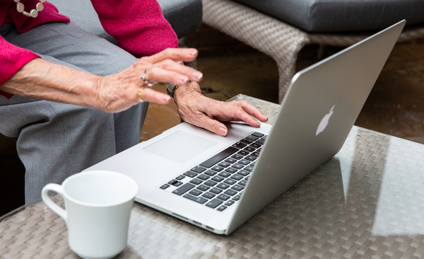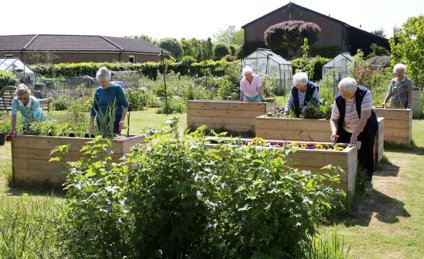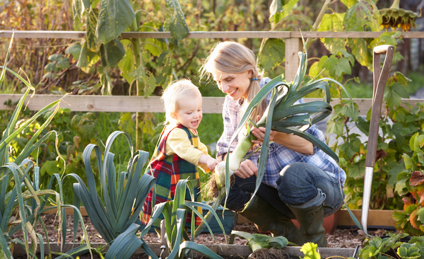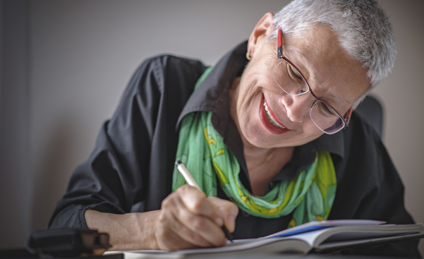
This year’s theme for International Volunteer’s Day is solidarity through volunteering. As a society we’ve known for a long time that many over 60s are motivated by a sense of duty - a desire to give something back. We often see this with residents at RVG communities, who put a lot of time into helping families, friends, local communities, and volunteer led organisations. This input isn’t just nice to have, it’s often essential to keeping the show on the road and it’s through this unity of action that shows how this group encompasses everything International Volunteer’s Day is about.
Yet, it’s also true that the over 60s get criticised for their perceived wealth compared to younger generations. So, we were curious to know: what are older people already putting back and could we put a value on it? RVG therefore asked the Centre for Economic and Business Research (CEBR), to calculate the value of free time committed by the over 60s to economically valuable activities. Their analysis showed the figure to be a whopping £48bn - the equivalent of 2% of the UK’s GDP and more than the UK spends on its defence budget every year.
How is this time spent?
The most common area of activity is not surprising - providing free care for the nation, with close to one million retired people acting as informal carers to loved ones - looking after grandchildren or caring for parents and other relatives. A second popular activity comes in the form of civic duty – no less than a third of councillors on England’s 12,000 local authorities are over 65.

A third area is through paid or self-employment. While older people may have left salaried jobs by their mid-sixties, many stay active as part-time consultants, and some even start new businesses. One example of an ‘olderpreneur’ is Jane Briggs, an RVG resident at Elmbridge Village, and founder of an accountancy firm. Now 67, Jane is the managing director and still does a four-day week at the family firm but is hoping to go down to three so she can devote more time to her role as Chair of Elmbridge’s Resident Association, due to her passion for her community.

We see other examples of the entrepreneurial spirit burning bright at our own communities. At our Lime Tree village, three residents in their 70s started their own resident maintenance handy team. From hanging up pictures and curtain poles for new residents moving in, to smaller plumbing jobs and general repairs, the team are there to help residents whenever they need. They’re now looking at having their own workshop at the village and getting more local people involved.

At RVG, it’s our belief that in any debate about intergenerational fairness, we should remember that today’s cohort of over-60s are contributing to the economy for longer than ever before. As their own parents live into their nineties and beyond, many will provide free care well into their seventies and even sometimes their eighties. At the same time, unlike previous generations, people in their sixties have the skills to keep on working, as most are digital natives like the rest of the labour market - more than capable of being commercially active from home.

With the UK experiencing one of the tightest labour markets for decades, including an acute lack of carers, older people are already an important national resource. There is more we can do to encourage this - to create the right conditions for older people to stay economically active for longer. Owners and operators of integrated retirement communities should do everything they can to connect residents to the right opportunities locally. The next generation of communities that we build should be designed to be totally integrated with their local surroundings, so that the old stereotype of the gated retirement community is banished to the past. Families can also do their bit by encouraging their elders to stay economically as well as socially active well past the formal point of retirement.
We all know the demographic direction of travel. Fewer people are retiring on defined benefit schemes and pension triple lock is under increasing pressure. Meanwhile working aged people are being asked to pay for social care for the elderly through higher national insurance contributions. So, it follows that the social contract between working age and retired people will continue to come under scrutiny.
It’s our hope that over the next decade, in looking at some of the challenges we face as a society, policymakers seek solutions that draw upon the skills and experience of older people while at the same time recognising the growing contribution already being made to the economy. Our elders are so often the glue of our communities. Let’s do more to acknowledge this, particularly this International Volunteer’s Day, while also creating new opportunities where we can for older people to stay economically active.
